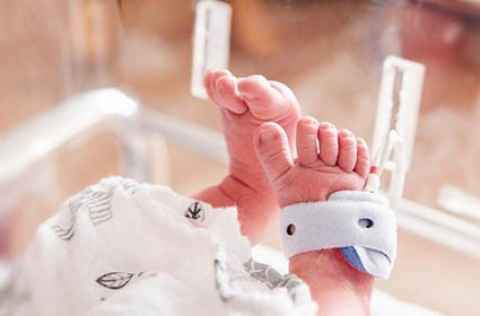Postgraduate study in Fetal, Perinatal and Maternal Health
The period from before conception through to early childhood is critical in determining health throughout life.

Overview
Take part in this research and you’ll investigate the effect of maternal, fetal and neonatal treatments and interventions on a child’s growth and development. You could explore neonatal nutrition, fetal growth restriction or the causes and consequences of preterm birth. Analysing the long-term outcomes of clinical trials is critical too - including the prevention and treatment of neonatal hypoglycaemia, antenatal steroids, and the management of diabetes in pregnancy. Join us and you could be part of clinical trials and follow-up studies, experimental research, research synthesis (reviews) or research translation into medical practice guidelines.
Supervisors
Click on each supervisor to find out what projects they currently have available.
- Professor Frank Bloomfield (Neonatal paediatrics, preterm birth, fetal growth & development, neonatal nutrition, growth and metabolism; clinical trials; fetal and neonatal growth restriction and therapy)
- Distinguished Professor Dame Jane Harding (Fetal & neonatal care; growth, development & fetal physiology; nutrition & growth factors; clinical trials; long-term follow up)
- Professor Caroline Crowther (International maternity & child health, research synthesis, randomised trials, translational research)
- Professor Katie Groom (Maternal health, pregnancy complications, preterm birth)
- Dr Gergely Toldi (Immunology. neonatology, autoimmunity, obstetrics and gynaecology)
- Dr Luling Lin (Maternal and infant health, research synthesis, translational research)
- Dr Lisa Dawes (Obstetrics and gynaecology)
Current research projects:
- Low Glucose Levels in Babies (This research opportunity has been filled)
- Predicting Early Development in Moderate to Late Preterm Babies
- Neonatal Hypoglycaemia Guidelines (This research opportunity has been filled)
Masters and doctoral projects are available to explore the following questions:
- Long-term outcomes of clinical trials, including prevention and treatment of neonatal hypoglycaemia, antenatal steroids, and management of diabetes in pregnancy.
- Cognitive and health antecedents of achievement at school
- Whānau views of which outcomes are important after clinical trials in pregnancy and the newborn.
- Secondary analyses of the ProVIDe trial ('Protein intravenous nutrition for extremely low birth weight babies: impact on development')
- Treatment of fetal growth restriction
- Metabolomics of breast milk in moderate-late preterm
- Delphi core outcome set for metabolic outcomes in teenagers born preterm
- Treatment of apnoea, feeding intolerance and nutritional and growth monitoring in extremely preterm neonates
- Screening and treatment of neonatal hypoglycaemia; optimising glycaemic management in neonatal intensive care
- Translating the DoHAD paradigm to well baby care
- Assessment of fetal movement concerns
- Gestational diabetes management and long-term effects on offspring.
- Research synthesis and meta-analysis
- Cochrane systematic reviews on critical topics in perinatology such as the role of magnesium sulphate, antenatal corticosteroids, maternal glycaemic control in women with diabetes and the potential for myoinositol to prevent gestational diabetes.
- Acquire critical skills in how to develop Clinical Practice Guidelines, the go-to documents for health practitioners at the coal-face
- Economic analysis of different diagnostic thresholds and glycaemic targets for gestational diabetes
You can get a scholarship to assist with your study. See what’s on offer for Liggins Institute students.
Are you an undergraduate student interested in research? Check the Honours projects available at the Liggins Institute.
Publications
How to apply
Contact the team to find out more about the projects on offer or to apply.
Professor Frank Bloomfield f.bloomfield@auckland.ac.nz
Distinguished Professor Dame Jane Harding j.harding@auckland.ac.nz
Professor Caroline Crowther c.crowther@auckland.ac.nz
Professor Katie Groom k.groom@auckland.ac.nz
Dr Lisa Dawes l.dawes@auckland.ac.nz
Dr Gergely Toldi gergely.toldi@auckland.ac.nz
Dr Luling Lin luling.lin@auckland.ac.nz



